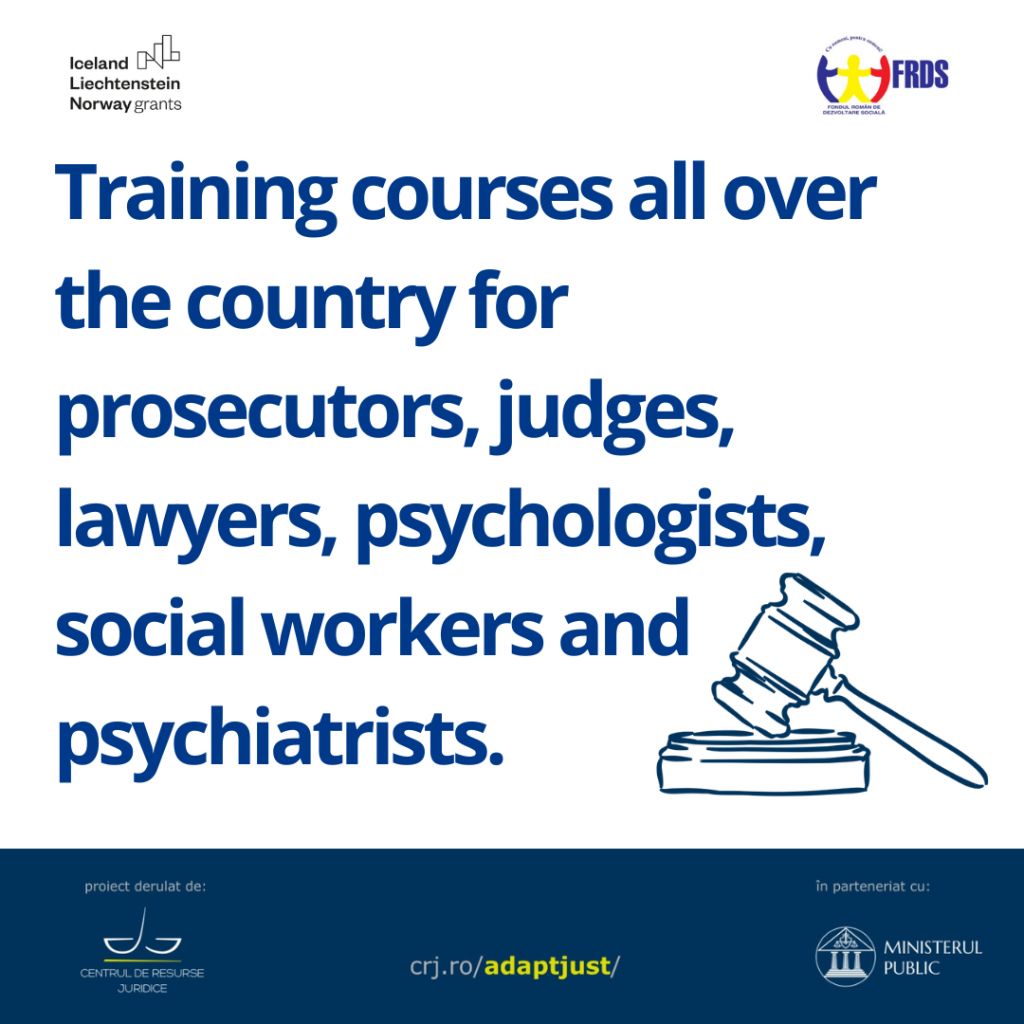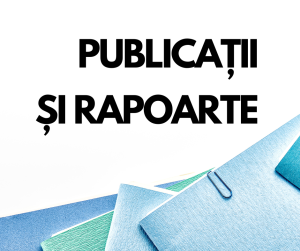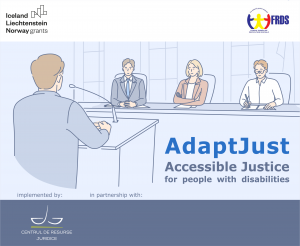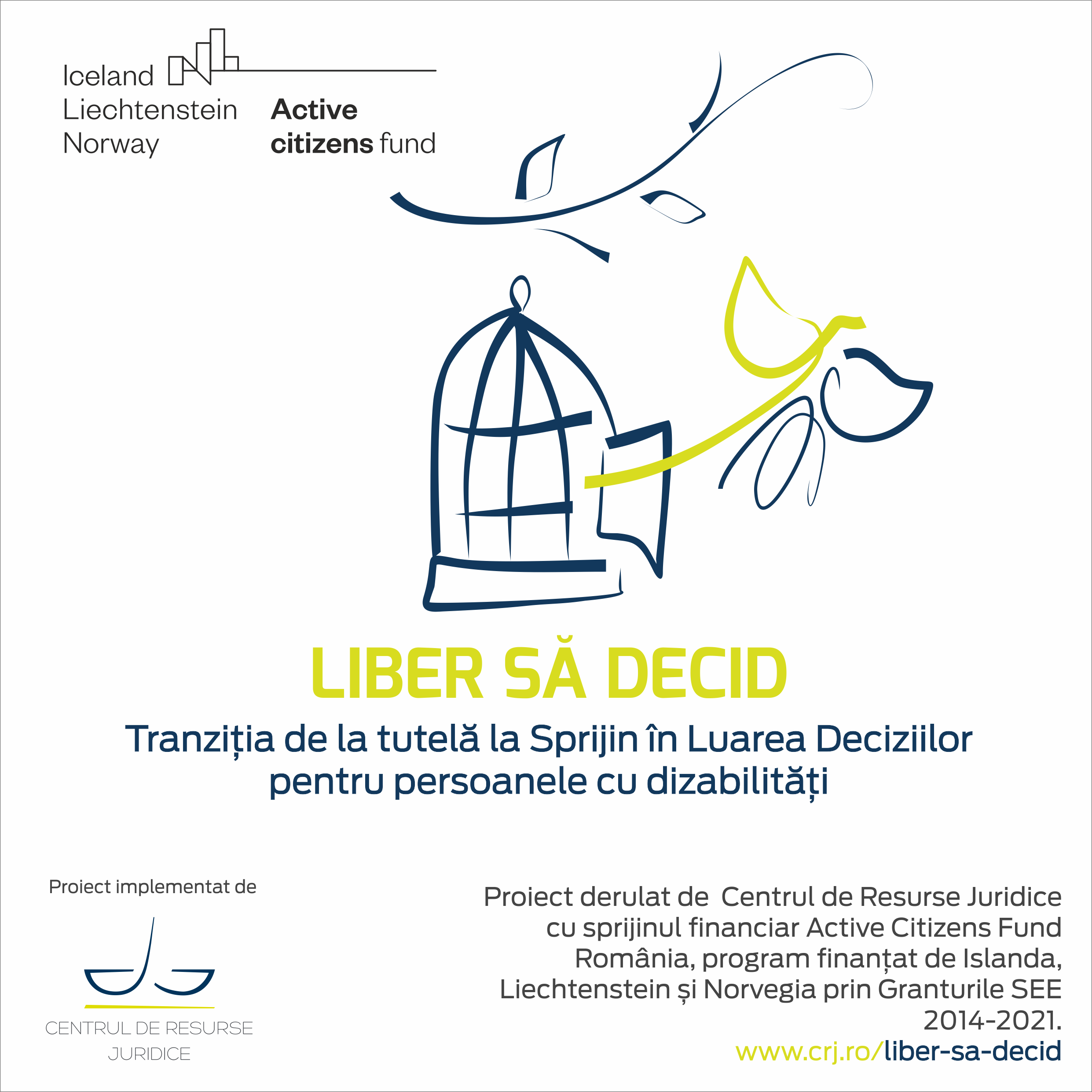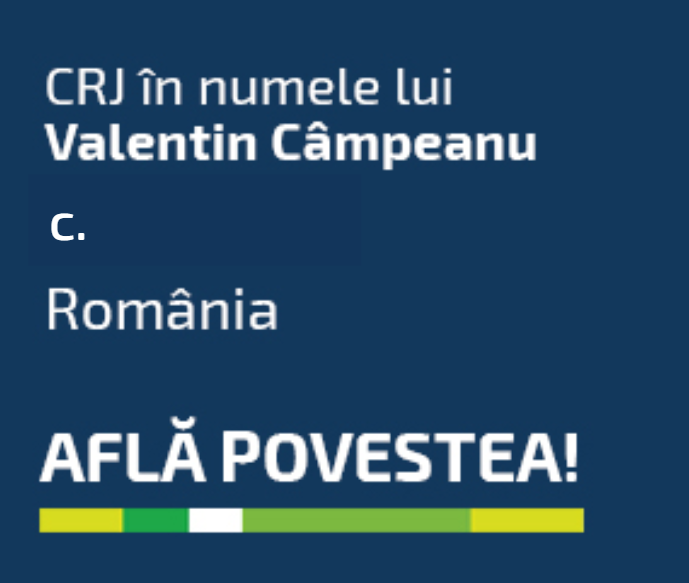Considering everything that we’ve done until now, we found it necessary to offer everyone a summary of what it meant to organise 12 courses across the entire country, with the help of our interdisciplinary team.
Why did we consider it necessary to have such a large horizon?
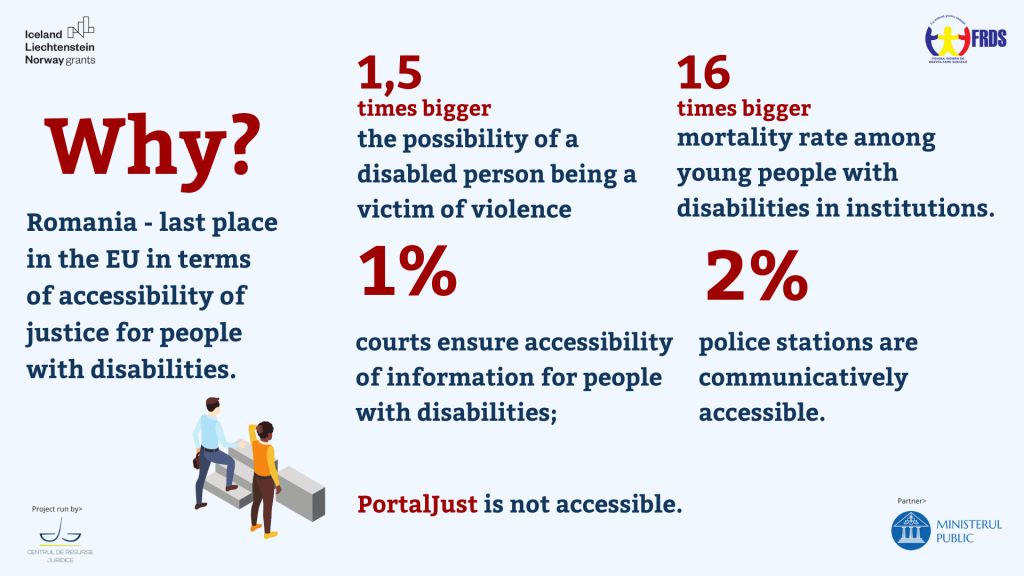
The subjects discussed were various and, given the subject matter, intricate. Lots of questions were asked and answered, many hypothetical situations were analysed in groups, the current situation in Romania was evaluated in detail by the participants.
How do our statistics look like?
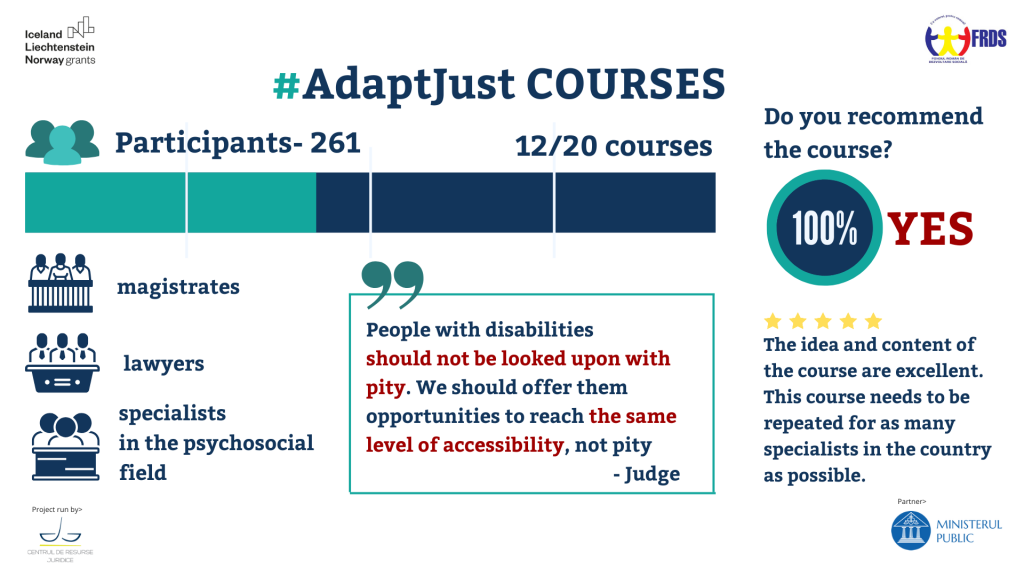
During the 12 courses of the AdaptJust project, accessible justice for people with disabilities, magistrates, lawyers and psychosocial specialists addressed topics such as: access to justice, involuntary commitment, patient file, community psychiatry, community living, ECHR decisions. Based upon that, several interactive activities took place, the goal that we had being to make everyone collaborate with the others, as it should happen in reality.
After everything was discussed, the participants made several proposals for the National Action Plan. These include the following:
- Dissemination of information to staff in residential centres on access to justice for people with disabilities
- Effective information (by qualified staff) to people with disabilities in residential centres about their rights
- Information materials in plain language
- Facilitating complaints to the authorities
- Making it easier for people with disabilities in residential centres to lodge a complaint or report a violation of a right
- Statistical clarity of data on persons in residential homes and psychiatric hospitals and the rate of abuse in these institutions
- The existence of independent control mechanisms
- Existence of a system of dissemination (DGASPC / Psychiatric Hospitals – Police – Prosecutor’s Office) of cases where a person with disabilities is at risk of becoming a victim of abuse or is a victim of abuse
- Special work programmes carried out by the Ministry of Labour for people in residential centres
- Legal regulations for the existence of a facilitator in justice
- State initiative to set up social services in the community (community psychiatry)
- Development of a platform containing explanations of legal/medical terms with access for interested staff
- Development of databases accessible free of charge to all specialists and stakeholders (e.g. legal representatives, social workers, parents)
- Use of accessible and useful language in forensic reports
- To make it easier for lawyers to be aware of the level of discernment the person had, for example, at the time of the offence, and conversely, for lawyers to make expert requests with needs expressed in language accessible to medical staff/social workers, etc.
- Development of special spaces for hearing people with disabilities
- The possibility of having a person with whom the auditee feels comfortable attending the hearing
- Creating a digital and automated alert system for prosecution authorities to be able to self-report more quickly and easily
- Following the implementation of the action plan, no more people “falling between systems”
- E.g. released from an institution without any plan or established environment in which to live, and then institutionalized again
- The existence of a human rights specialist with legal training in each DGASPC to carry out monitoring visits and to report cases of violations of the rights of persons with disabilities
- Collaboration between the Ministry of Interior and the Ministry of Health on the training of competent bodies interacting with people with disabilities (risk management)
- Bar-trained lawyers to visit residential homes and psychiatric hospitals
- The existence of a ‘guardian’ for people with disabilities
- Setting up mobile teams of specialists trained in working with people with disabilities
- Each court to have a psychosocial professional to contribute to disability-friendly communication
Some of our participants testimonies:
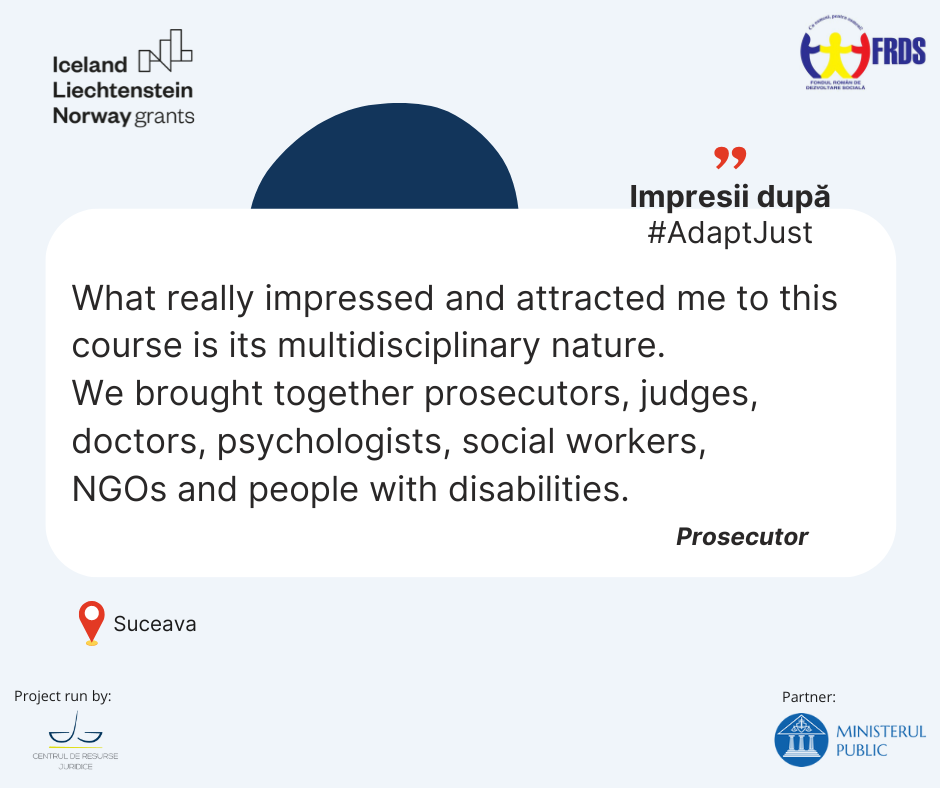
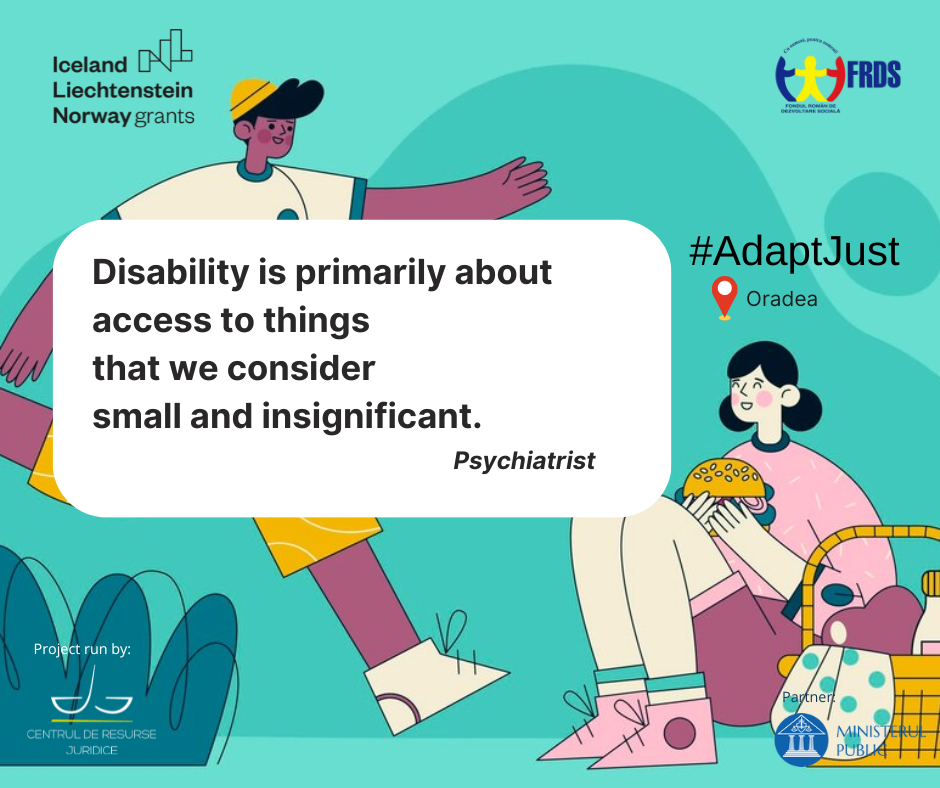
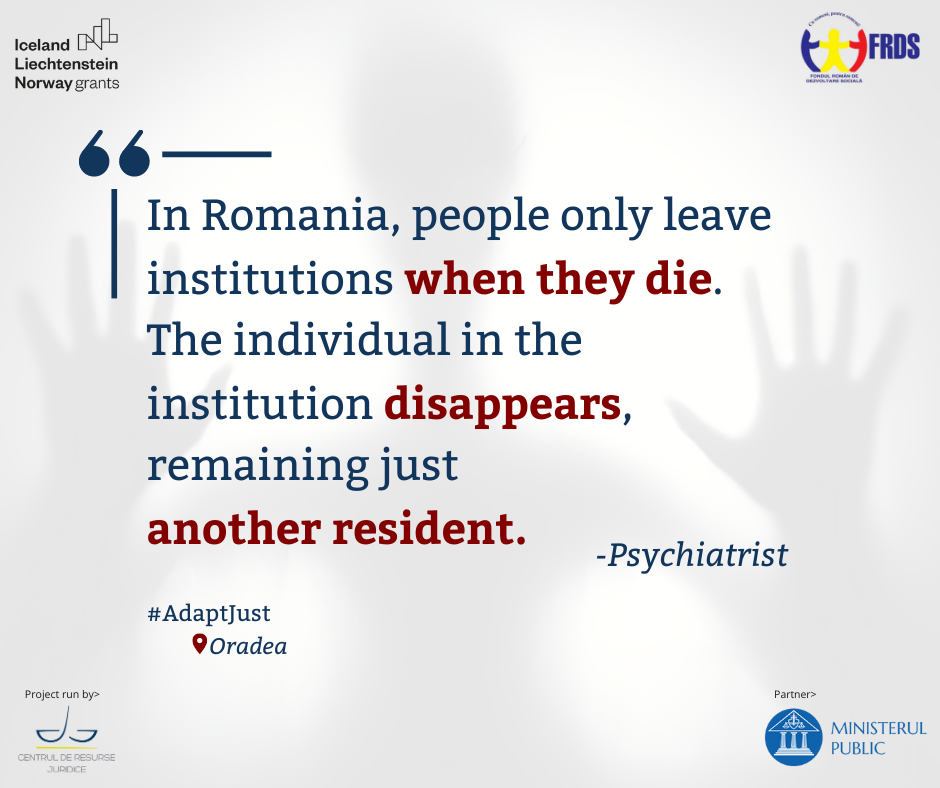
Gallery:
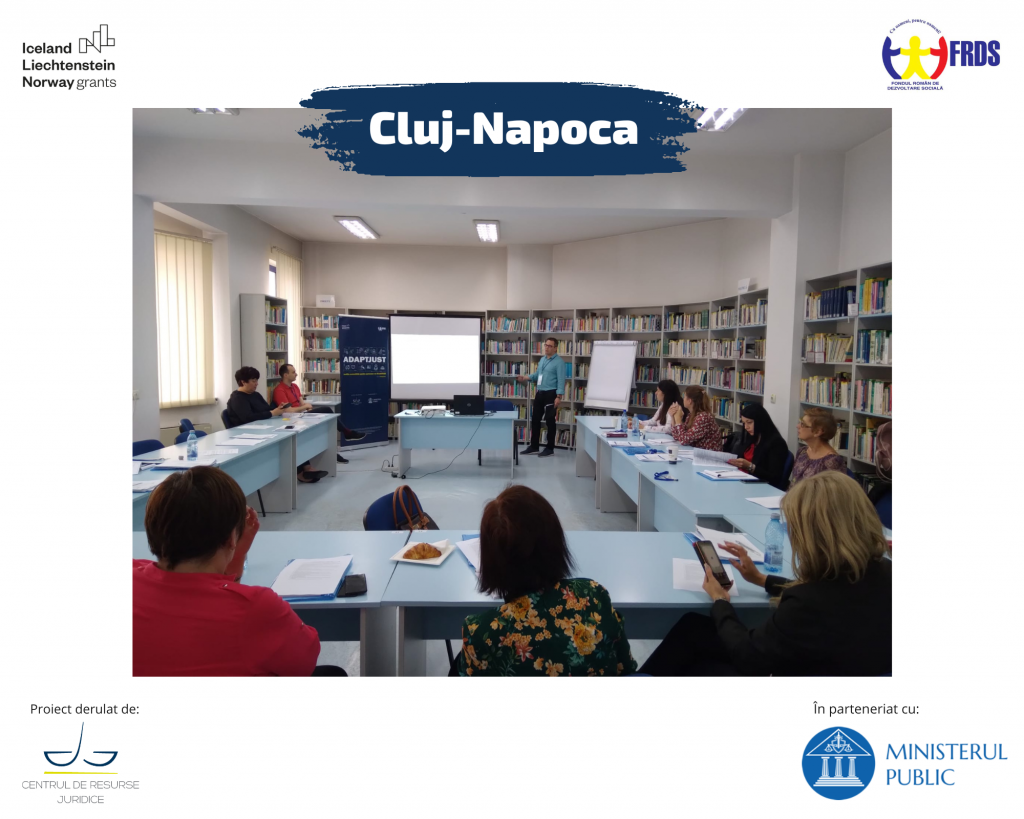
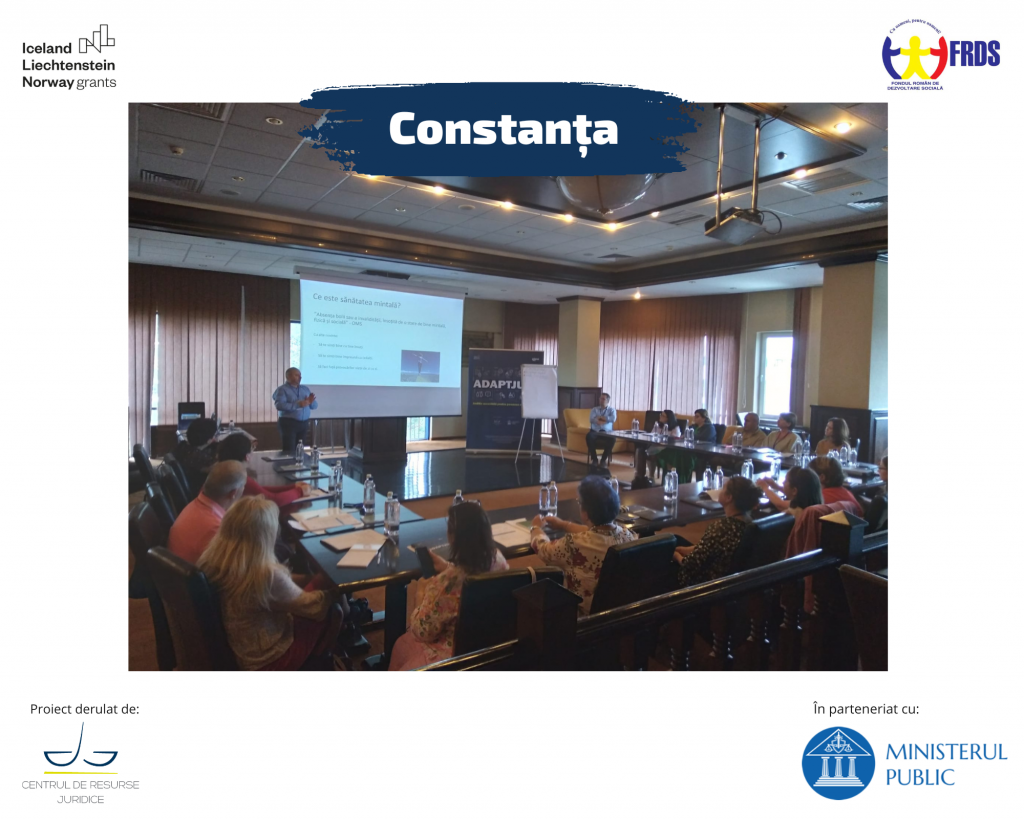
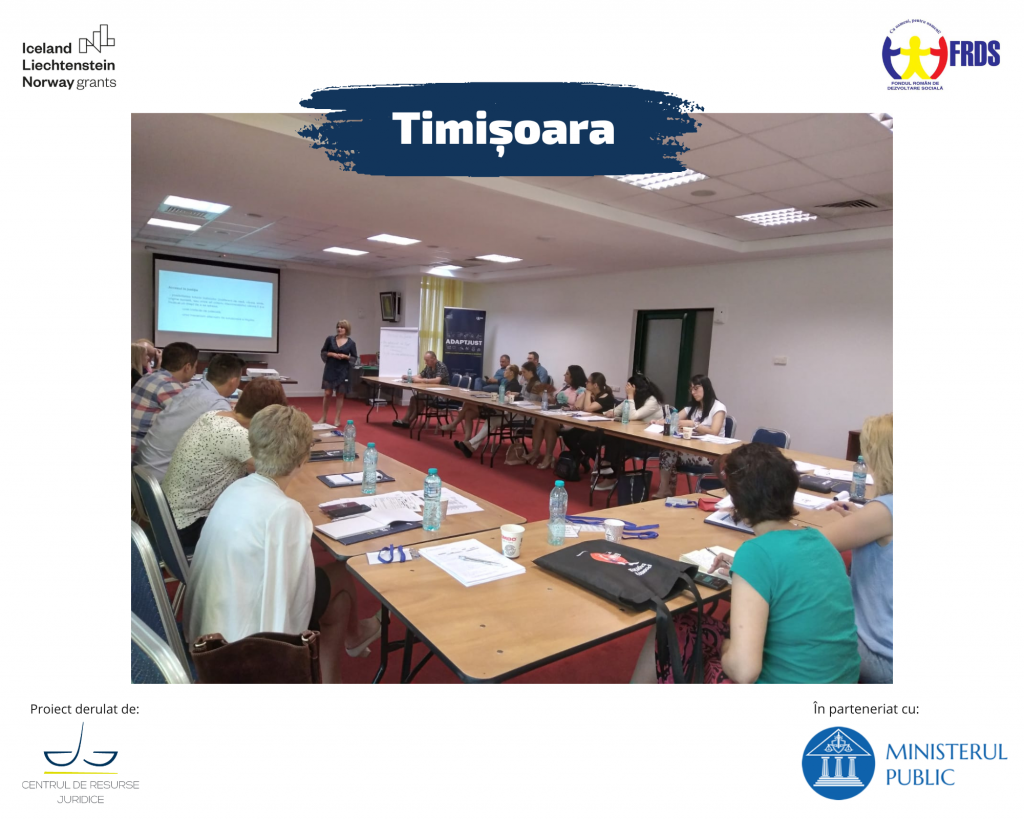
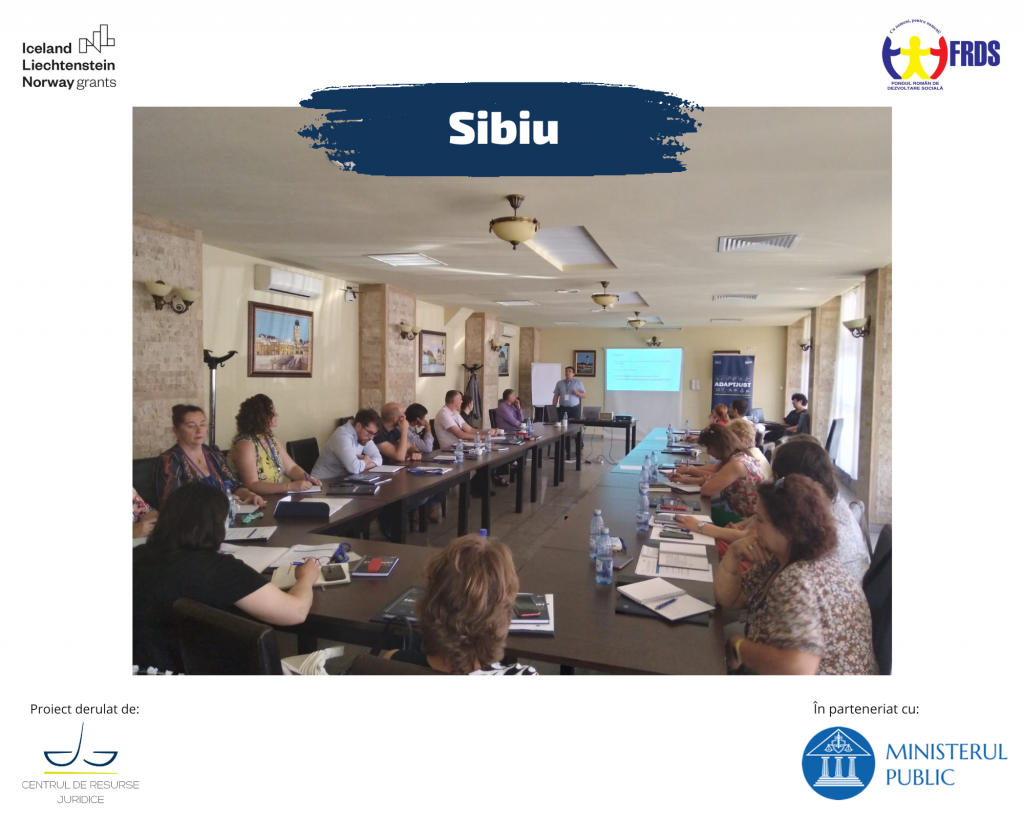
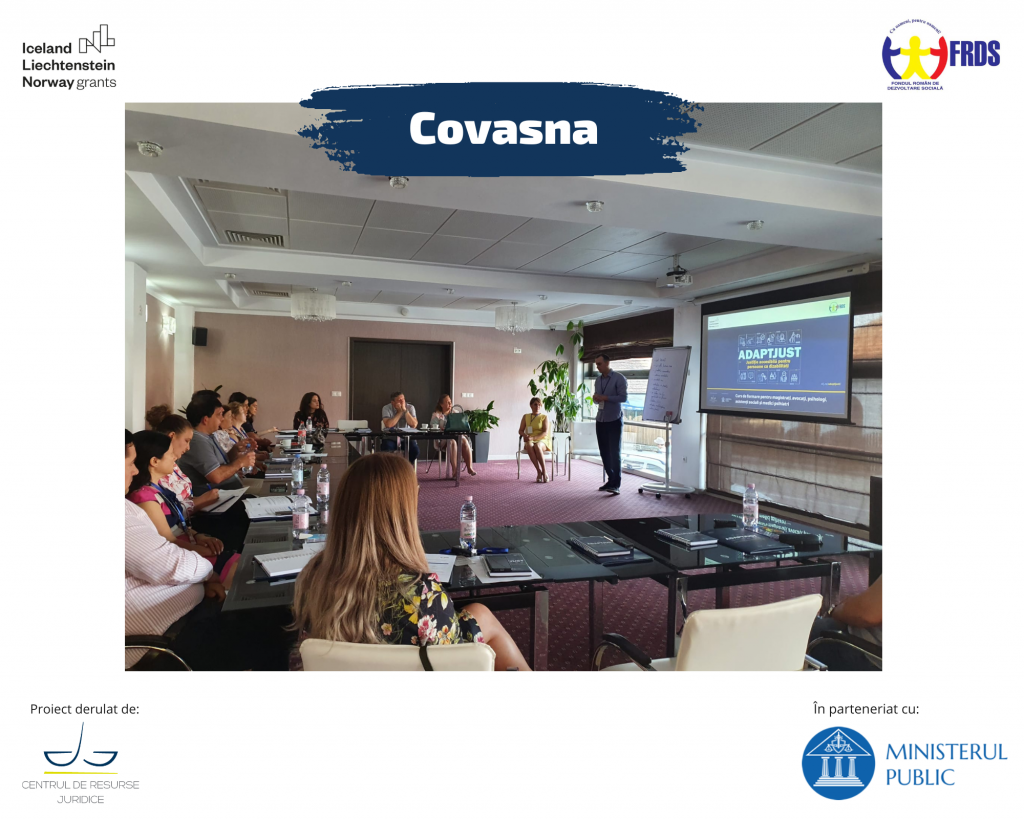
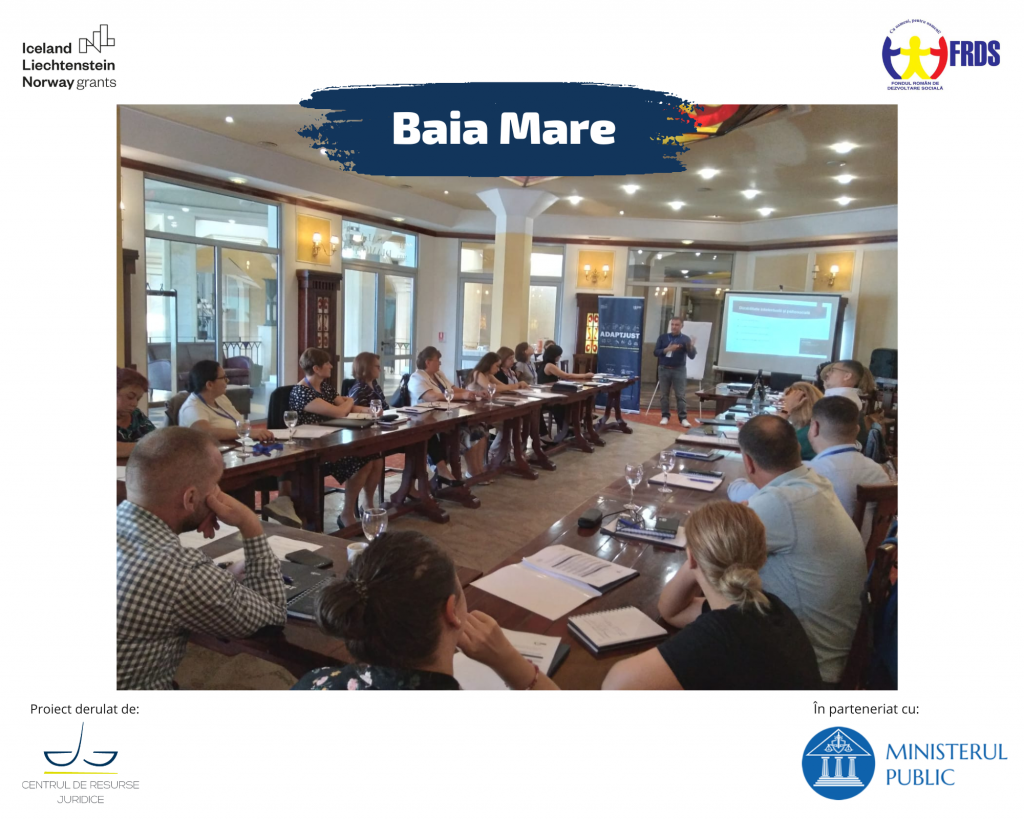
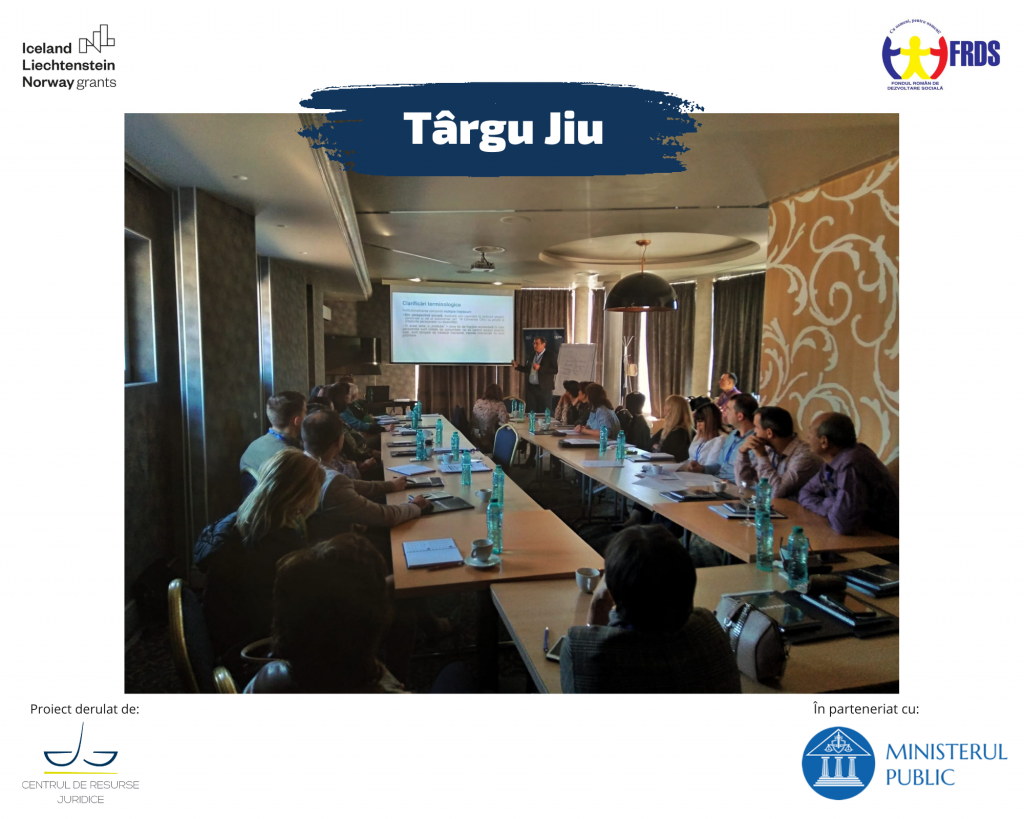
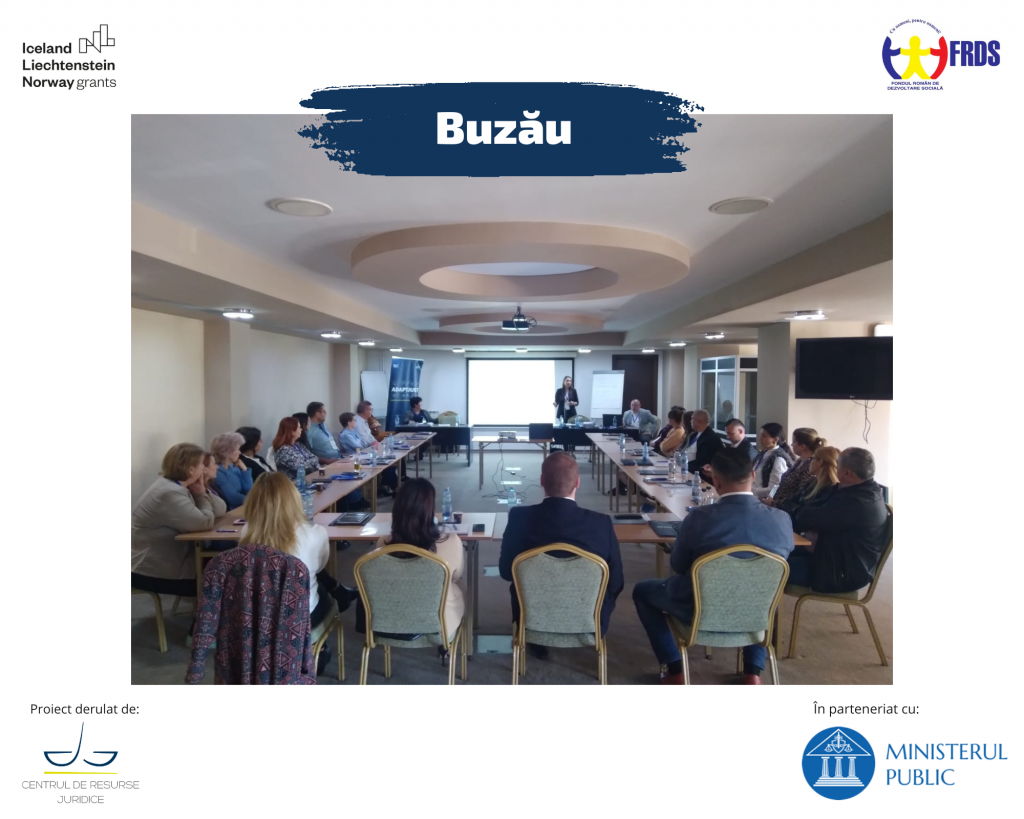
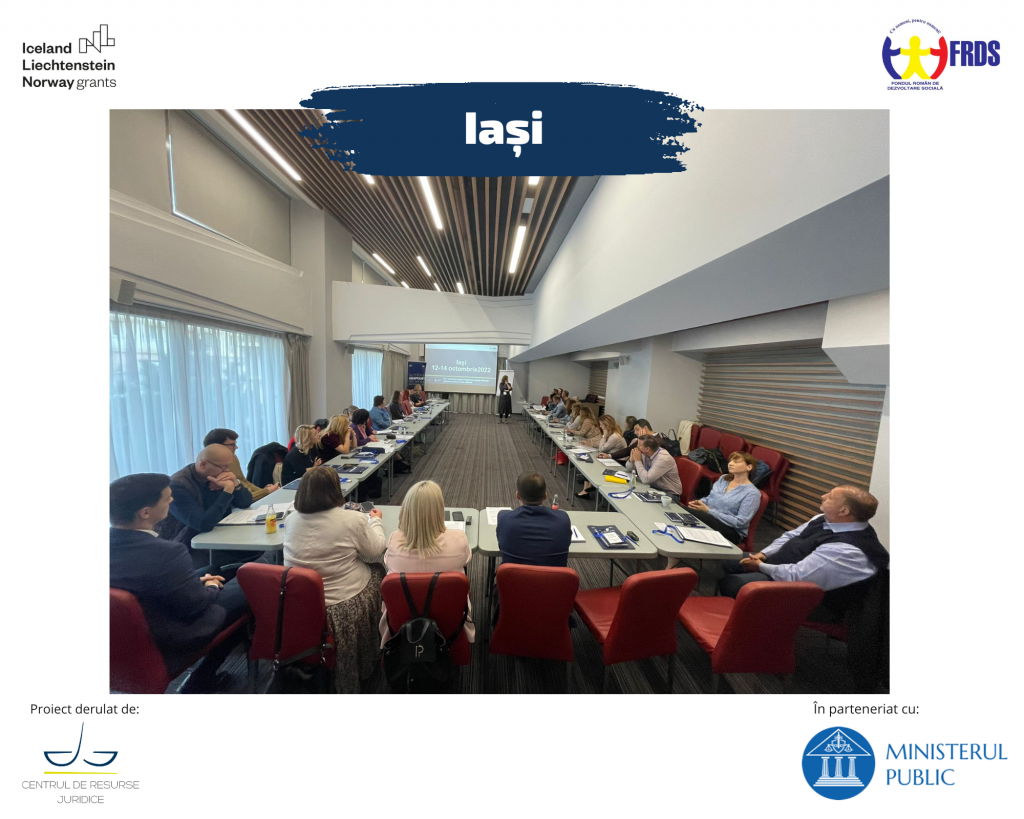
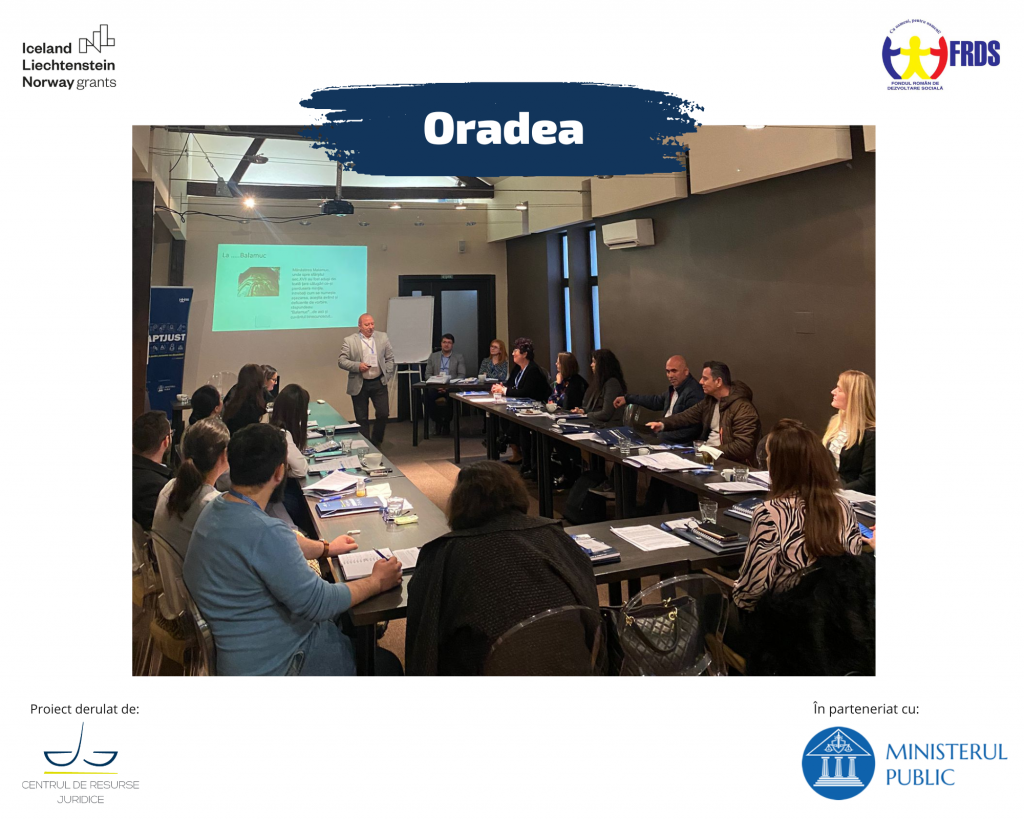
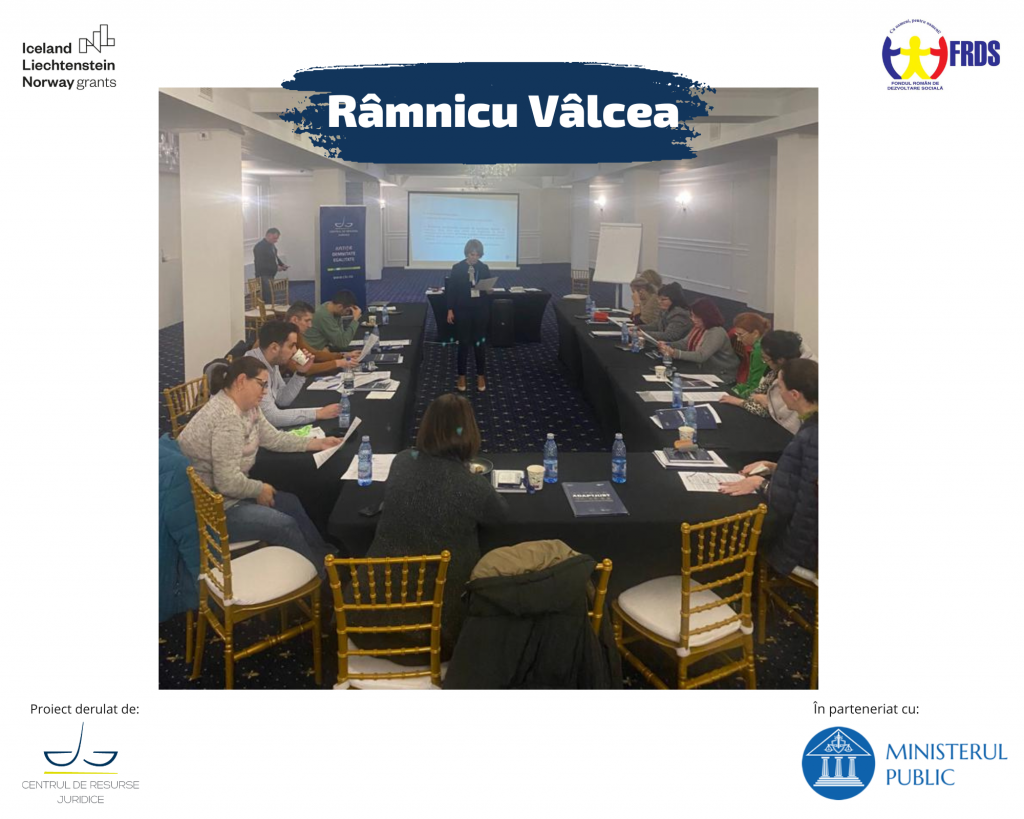
The project is implemented by the Centre for Legal Resources in partnership with the Public Ministry – Prosecutor’s Office of the High Court of Cassation and Justice and benefits from a grant of €1,324,994 offered by Iceland, Liechtenstein and Norway through EEA Grants under the Local Development Programme. The objective of the project is to facilitate access to justice for people with intellectual disabilities and/or mental health problems.
Project implemented with the financial support of EEA Grants 2014 – 2021. Its content (text, photos, video) does not reflect the official opinion of the Programme Operator, the National Contact Point or the Financial Mechanism Office. The information and opinions expressed are the sole responsibility of the author(s). For official information on EEA or Norwegian Grants, please visit www.eeagrants.ro.

